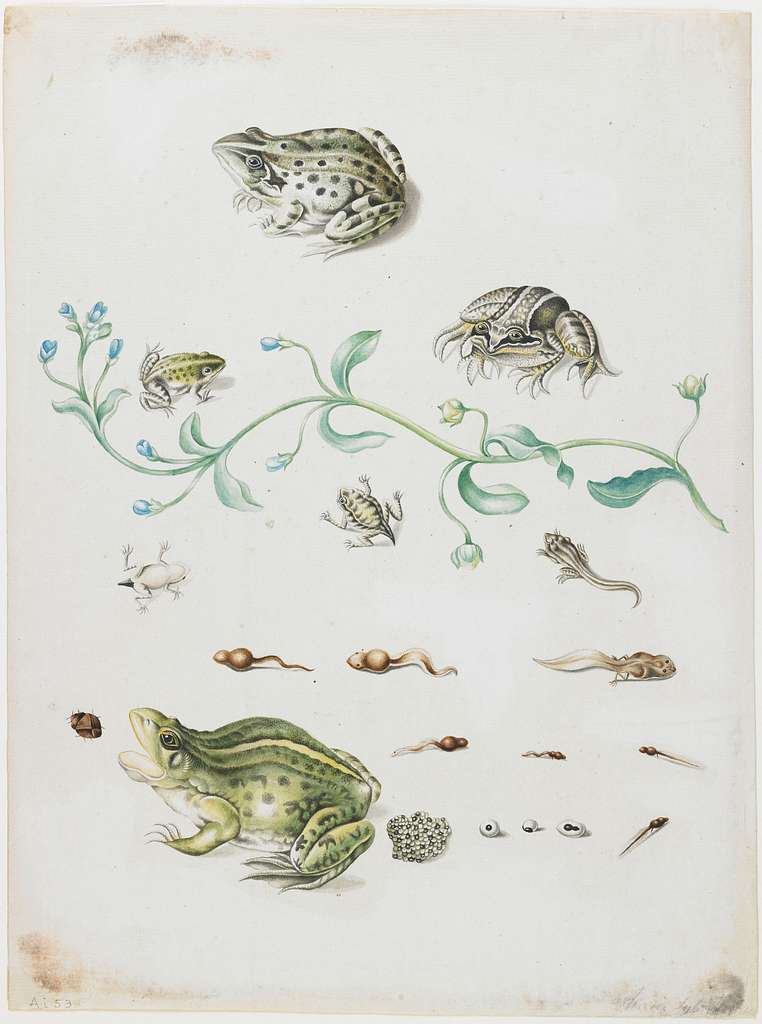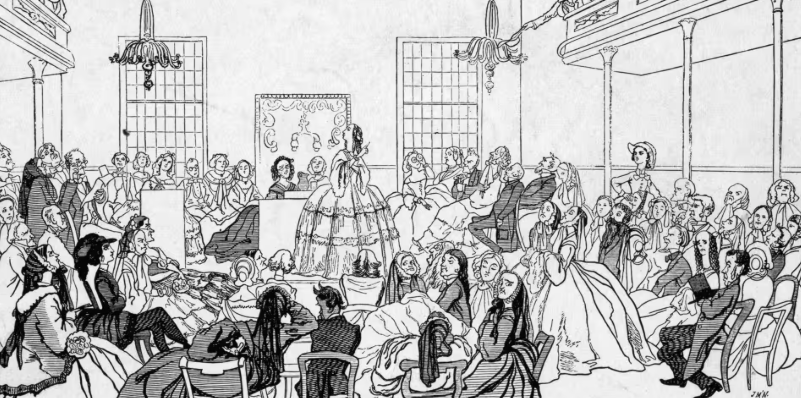Growing up as the only American-born child of an entirely immigrant family, I had a bit of a strange experience with language. I grew up bilingual, speaking both Mandarin and English. English I would speak at school, with all my friends, to my teachers. Mandarin, I would speak to my family. Bred out of necessity, I would become fluent in both languages. But it wasn’t so simple, unfortunately.
Think about it this way: ever tried cooking? You do a lot of things while cooking. Chopping, stirring, baking, measuring– doesn’t really matter what you’re cooking, you’re just handling a lot of steps all at the same time. The sauce needs half an hour to reduce and you have to stir it every now and then, but how long exactly is a ‘now and then?’ Five minutes? Ten? You have no idea. Oh also, the pasta finishes cooking in 6 minutes but you should pull it out a little early just in case, right? Ah, and are you sure you can chop two carrots and an onion before those 6 minutes are up? And there’s a growing pile of dirty measuring cups and bowls in the sink, maybe you should start washing those. Now imagine you’re putting all that effort in, but you’re only allowed to make one dish– one version of yourself, and it has to please two people with very different culinary palettes– or rather, the embodiment of America and your native homeland. Bit of a tall order, isn’t it?
On one hand you live on American land, everyone wants to be American, and everyone is American. If you, as a foreigner, don’t become American as soon as you can, there is no means to survive here. But when you go home, nothing here is American. Your parents certainly aren’t, your lunch probably isn’t either. No one here is expecting you to be American. In fact, it’s quite the opposite. You get weird looks if you act too American. You’re probably quite confused and disorientated from all that. If I could interview Shakesphere’s dead ghost, he’d probably say something along the lines of “To be or not to be? That is the question.” Kinda sucks, doesn’t it? Welcome to a day in my life.
Coming from a forgien family, a lot of things change when you go to school for the first time. Up until kindergarten, I had never been in contact with anyone American. Up until kindergarten, I hadn’t known any English. Up until kindergarten, I wasn’t Chinese American. I was just Chinese. My first day of school, I remember my father dropping me off at the classroom. All the kids were drawing on a communal giant sheet of paper, and I had eagerly joined them. Being 5 years old, of course I loved to draw. My chubby little hand picked up a vibrant yellow marker, and I drew my favorite animal. My fellow classmate had turned towards me and taken a look at my masterpiece; I was sure he was impressed. Then he opened his mouth, and words came out. And I still remember that moment so vividly– the sounds coming from him just didn’t make sense. Didn’t sound like anything I’d heard before. Eventually after enough of him pointing at my little drawing, I figured he wanted to know what it was. I stumbled through saying one of the few English words I knew: “dog.” I’ll never know if that was actually what he asked. It probably wasn’t. I still remember his unimpressed face. He left my table. Took my marker too. Maybe that was the first time I realized, the me I currently was, wasn’t enough.
And so I was whisked away into special classes. A teacher would pick me up in the middle of snack break everyday for small group learning. It went on from kindergarten to second grade, until in third grade when I no longer needed the classes. I was finally a proper American. Sanitized and proper, I spoke like a normal person. Gone were the stunted, short-hand responses I was only capable of by second grade. I spoke full sentences with all the tacks and whistles, my classmates often told me I spoke very fancy. People understood me, and people respected me. No more weird looks when I opened my mouth. They finally took me seriously.
I think part of my fierce motivation to learn and speak English came from the very fact that I was Chinese. It reminds me of a text I had read, written by a fellow second generation Chinese American immigrant– her name is Amy Tan. In her essay Mother Tongue, she talks about her experience learning English as a child. She talks about how being a Chinese girl, no one expected her to wield the English language with such power that she could become an author– and how that only encouraged her to pursue English further. Here’s a direct quote from the text: “I happen to be rebellious in nature and enjoy the challenge of disproving assumptions made about me. I became an English major my first year in college.” I remember reading that line and thinking, “that could be me.” English had always been my favorite subject in school, even before I reached full fluency in 3rd grade. It wasn’t always my best subject, I did exceptionally well in math and science too. But throughout my years in the American education system, I found that writing in English class, even if it was another boring persuasive essay, was always better and way more fun than solving depressed polynomials in math class (coincidently, I feel the exact same way those polynomials do when I solve them). English was what I enjoyed, and I still enjoy to this day. As a child, after I learned English, I could and would read full length chapter books while my peers were more concerned with when recess was going to start. I both enjoyed it, and wanted to prove a point– I had to make up for the times I spent being effectively illiterate in the English language from my toddler and early childhood years. There was a sense of pride to it, too. I liked the idea of being the Chinese 4th grader able to read far more and far faster than their peers who grew up with English, but still could not surpass me. And based on her essay, I think it was the same for Tan. The world never believed in either of us– so we learned English to prove them wrong.
I didn’t feel it until I was into my preteen years, but my success in wielding the English language negatively impacted my ability to speak my own native tongue. The more apt I became at English, the more my ability to speak Mandarin paled in comparison. While my English reading level kept pace and even surpassed the usual for my age, my own native tongue became stagnant. If I was in 4th grade, my English would be 5th grade level while my Mandarin would still be in kindergarten. It’s never a problem at school of course; No one expects me to speak Mandarin at school. But at home, it’s different.
It was a perfectly normal lunch with my family. My mother sat across me, her bowl of rice in hand raised up in the same motion one would use to drink water, utilizing her chopsticks to push rice down the side of the bowl, into her mouth. On the other side of the table, using my own pair of chopsticks I was picking up small clumps of rice at a time and bringing them into my mouth, not unlike how one might use a spoon. I was around 13 then, and I guess that was long enough my mother finally decided to say something about my ‘American-ness’. She had told me, “you eat like a white person. Too proper”. It truly shocked me when she said that– I’d always known I was the most American out of my whole family being the only one even born here, but I’d never, never thought of myself as so American I was effectively just like the whites. My shock must’ve been evident, as she launched into a full lecture on every way I am too American and not enough Chinese. Things like the way I eat, how lazy I am, my values in life. But most of all, her biggest disappointment with me was language. I didn’t speak Mandarin well enough. And when I did speak it, I spoke it in an American way.
In my quest to be accepted by all the Americans around me, I polished myself. But to be Chinese, there is no necessity for polish. In fact, it is avoided. The Mandarin language encourages taking as many shortcuts in speaking as possible, from casual to formal speech. It is an art to cut down your words into the shortest simplest phrases possible. The shortest phrases are the most melodic to speak, to say, and comprehensible to the ear. When I spoke Mandarin, I did none of that. I used the full length version of words when true fluent speakers could cut them down to half the length, I added unnecessary pronouns like “me” or “I” to my sentences when the true native Chinese man could infer those pronouns from context of the conversation. I was truly American in her eyes. It hurt a lot when she told me all that, especially in how nonchalant she was about it. But that’s just another aspect of our culture and language– brutal honesty. If she were American, maybe she would’ve softened the blow. But of course, she is Chinese.
Sometimes I yearn for the version of myself that might’ve been, had my family stayed in China long enough for me to get a proper grasp on the Chinese language. If I spent just a few years on those Pacific shores, I’m sure I’d speak my native language so much better. But if that had happened, if I did get those few precious years in China, I still have to ask myself– would the same thing happen when my family eventually moves to America, just in reverse? Would the Americans around me scorn me for being too Chinese, as my family currently scorns me for being too American? Will the people of the West look down on me? Ignore me? Infantilize me? Treat me differently if I spoke with an accent? If I forget to mention a pronoun in a sentence? If my sentences are only four word phrases, incomplete? If I wasn’t American enough? It’s all pointless questioning. I know the answer already. I understand there is no balance, not for me. Despite how well I’ve adapted to American linguistics, there will always be people who take one look at me and automatically think I don’t belong here. Even if I were to master the Chinese language, nitpicky grandparents will always find the flaws in my speech. I cannot, and never will be able to please both sides. And I’ll have to make peace with that, because I have no other option. There exists no simplicity in this life, and I’ll have to make peace with that too. I have no regrets learning English, no regrets writing this little piece of my love of literature. I only regret that I don’t know enough of my own language, I will never visit my home country as anything more than a tourist.






